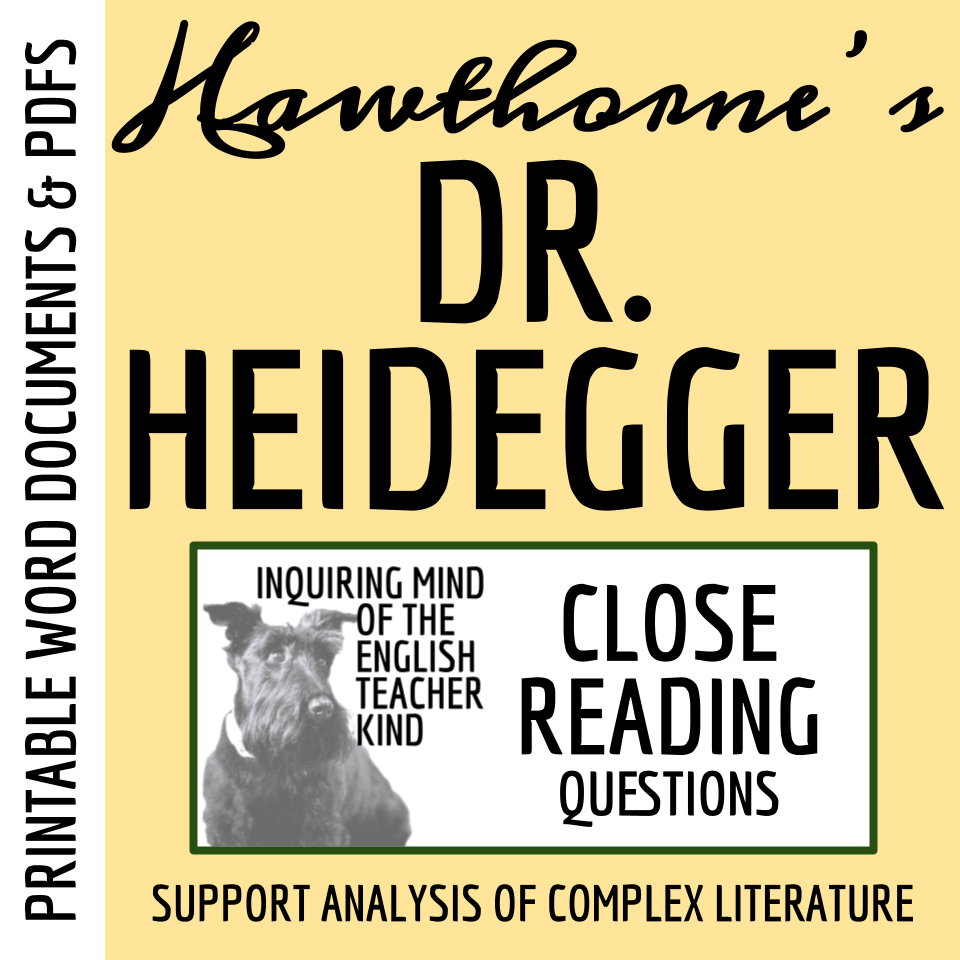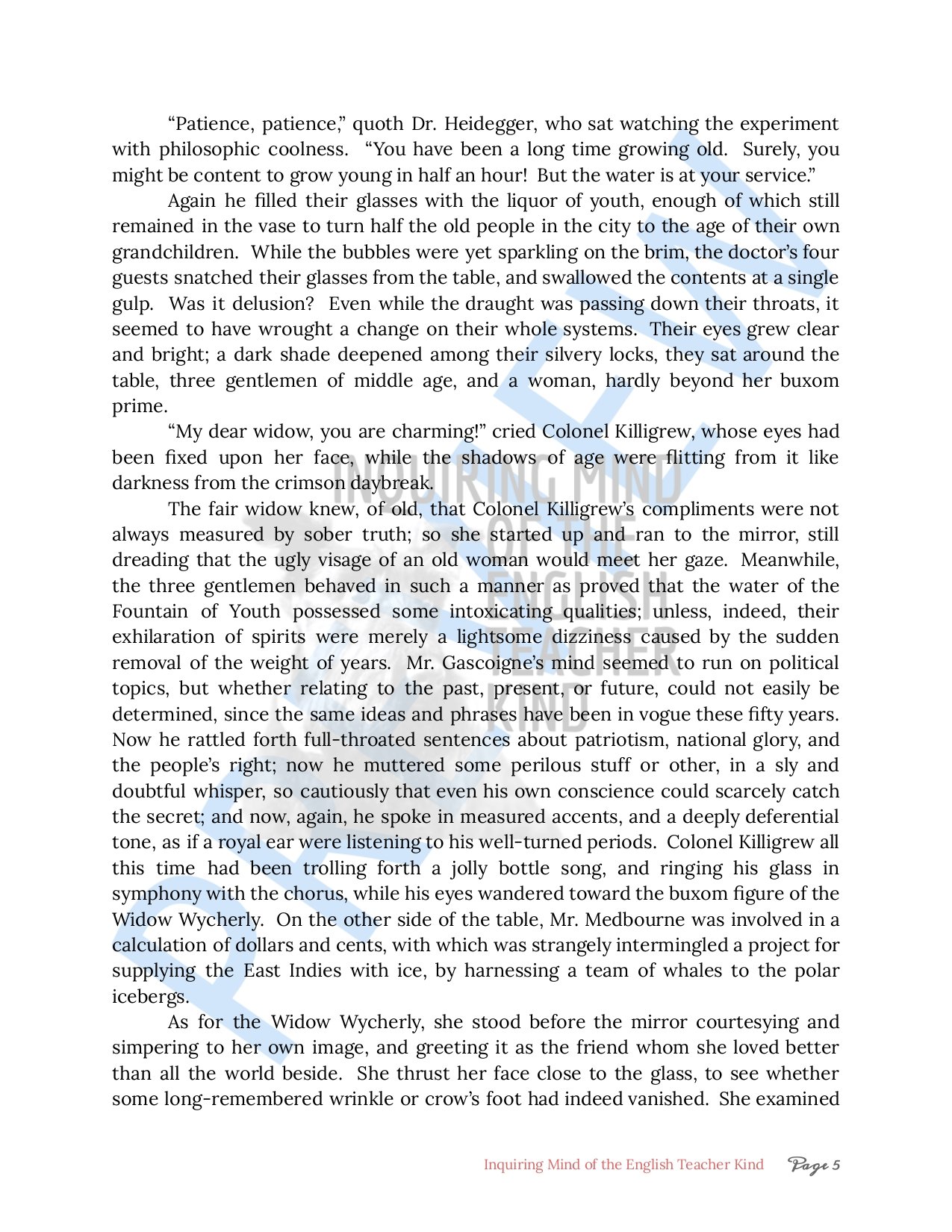"Dr. Heidegger's Experiment" by Nathaniel Hawthorne Close Reading Questions
Extend reading comprehension and support the development of close reading analysis skills with this rigorous worksheet covering the short story "Dr. Heidegger's Experiment" by Nathaniel Hawthorne (estimated Lexile Measure range of 1300-1400). Materials are delivered in Word Document and PDF formats. (Alternatively, a Google Drive option is available.) An answer key and copy of the public domain text are included.
By completing this activity, high school students will do the following:
Identify what the text states explicitly and implicitly
Explore how complex characters think, behave, develop, and interact
Compare and contrast characters
Infer the intended effect of the author's phrasing ("liquor of youth")
Apply knowledge of various literary devices including foreshadowing and symbolism
Examine nuances in words with similar meanings
Articulate the significance of a given detail
Come to class/leave class better prepared to discuss literary materials
Support claims and ideas with relevant evidence and valid reasoning
Write ideas with clarity, accuracy, and precision
Resources are available for a variety of Gothic novels and short stories:
Extend reading comprehension and support the development of close reading analysis skills with this rigorous worksheet covering the short story "Dr. Heidegger's Experiment" by Nathaniel Hawthorne (estimated Lexile Measure range of 1300-1400). Materials are delivered in Word Document and PDF formats. (Alternatively, a Google Drive option is available.) An answer key and copy of the public domain text are included.
By completing this activity, high school students will do the following:
Identify what the text states explicitly and implicitly
Explore how complex characters think, behave, develop, and interact
Compare and contrast characters
Infer the intended effect of the author's phrasing ("liquor of youth")
Apply knowledge of various literary devices including foreshadowing and symbolism
Examine nuances in words with similar meanings
Articulate the significance of a given detail
Come to class/leave class better prepared to discuss literary materials
Support claims and ideas with relevant evidence and valid reasoning
Write ideas with clarity, accuracy, and precision
Resources are available for a variety of Gothic novels and short stories:
Extend reading comprehension and support the development of close reading analysis skills with this rigorous worksheet covering the short story "Dr. Heidegger's Experiment" by Nathaniel Hawthorne (estimated Lexile Measure range of 1300-1400). Materials are delivered in Word Document and PDF formats. (Alternatively, a Google Drive option is available.) An answer key and copy of the public domain text are included.
By completing this activity, high school students will do the following:
Identify what the text states explicitly and implicitly
Explore how complex characters think, behave, develop, and interact
Compare and contrast characters
Infer the intended effect of the author's phrasing ("liquor of youth")
Apply knowledge of various literary devices including foreshadowing and symbolism
Examine nuances in words with similar meanings
Articulate the significance of a given detail
Come to class/leave class better prepared to discuss literary materials
Support claims and ideas with relevant evidence and valid reasoning
Write ideas with clarity, accuracy, and precision
Resources are available for a variety of Gothic novels and short stories:
Preview this resource.
Extend reading comprehension and support the development of close reading analysis skills with this rigorous worksheet covering the short story "Dr. Heidegger's Experiment" by Nathaniel Hawthorne.












